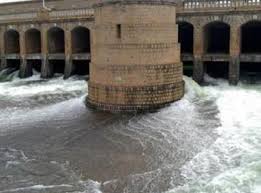 Coimbatore, Dec 12: Tamil Nadu has agreed to release water to Kerala as per the Parambikulam Aliyar Project (PAP) agreement for irrigation this year. The agreement was reached at a meeting in the city on Wednesday.
Coimbatore, Dec 12: Tamil Nadu has agreed to release water to Kerala as per the Parambikulam Aliyar Project (PAP) agreement for irrigation this year. The agreement was reached at a meeting in the city on Wednesday.
As per the PAP agreement between the two States, signed decades ago, Tamil Nadu has to release 7.25 TMC of water from Aliyar dam near Pollachi and 12.3 TMC of water from Sholayar dam in Valparai to Kerala throughout the year.
Tamil Nadu released to Kerala 9.3 TMC from Sholayar dam and 3.5 TMC from Aliyar dam between July and November this year, sources said.
Officials of both States have agreed to share the remaining water from the dam. Kerala’s share would be released before end of June next year.
“The storage in the dam is enough and the remaining water would be released to Kerala without delay,” said a Tamil Nadu official.
Earlier, Kerala officials had demanded the ‘arrears’, water which was not released to them last year.






Comments
Add new comment